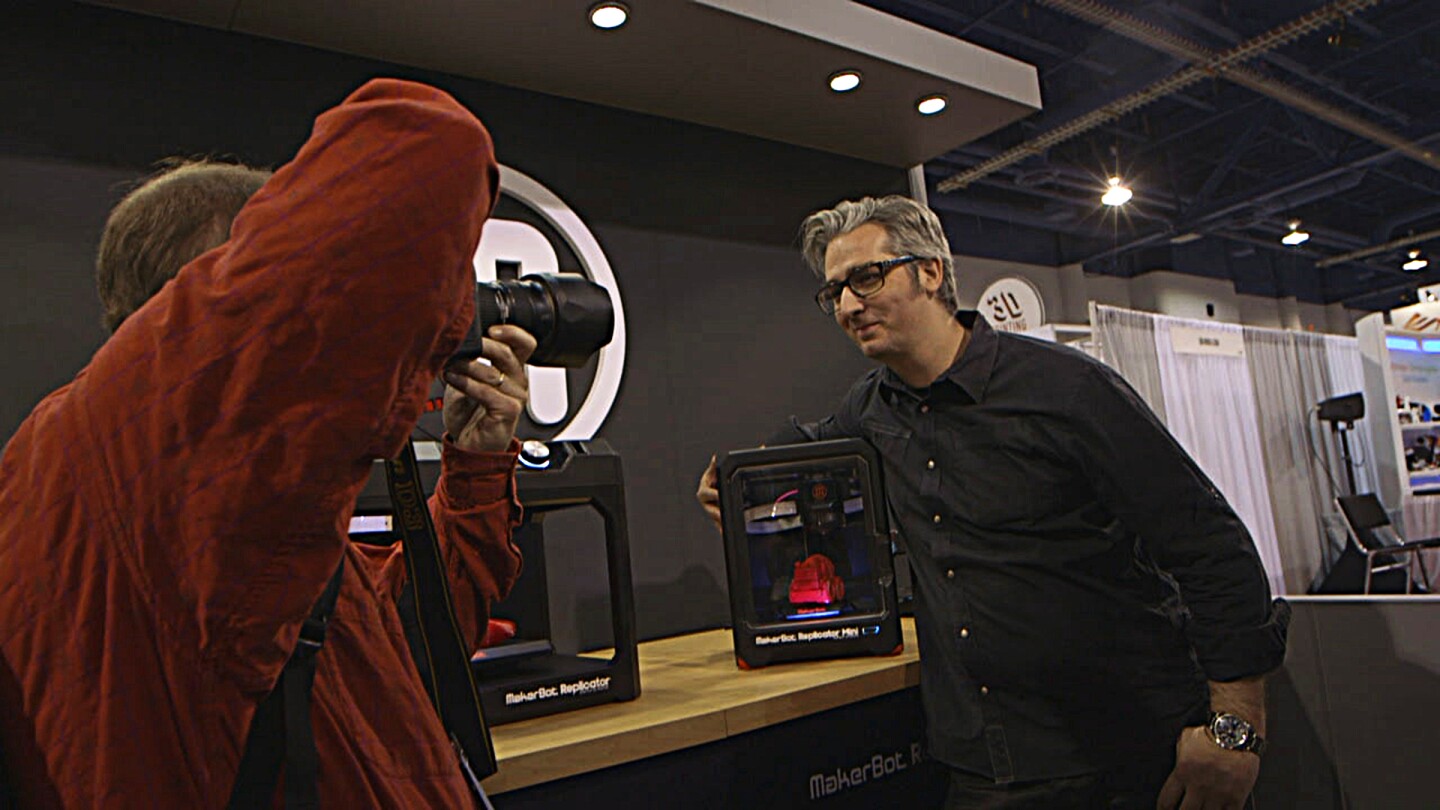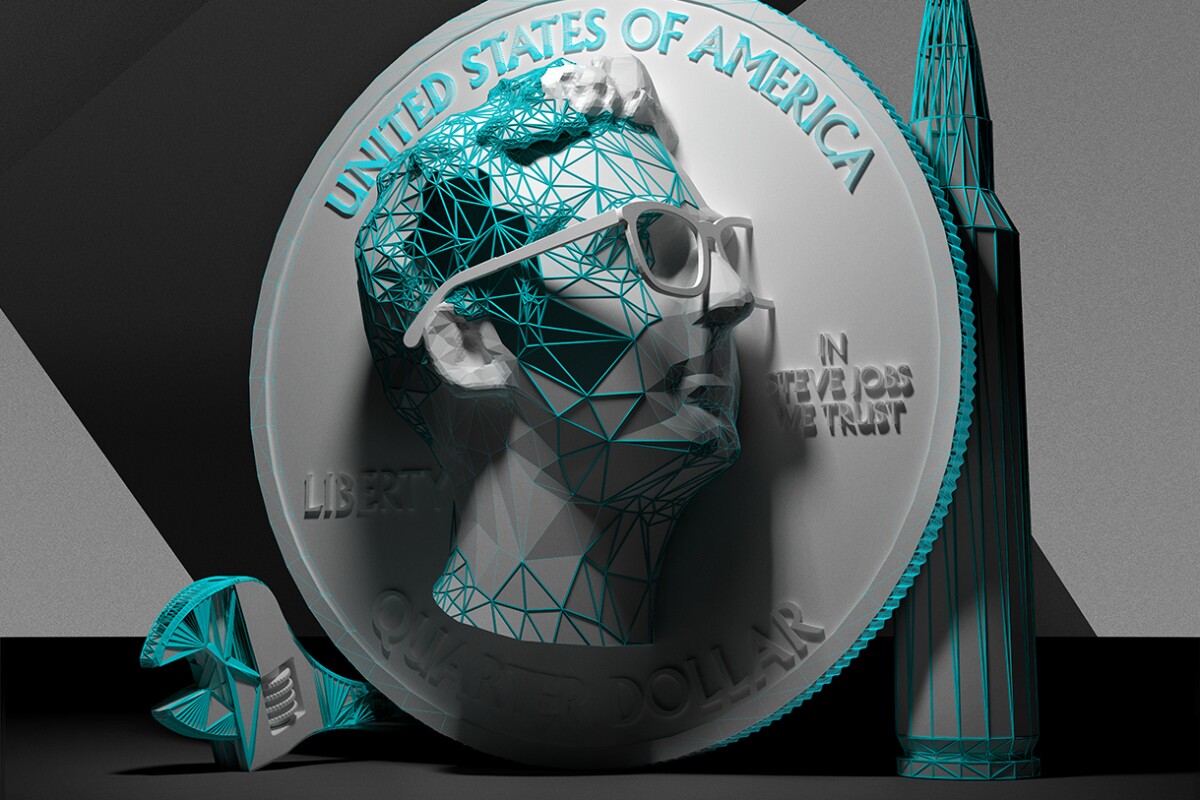3D printing is on a roll. Led by start-up companies like MakerBot and FormLabs, as well as the big-name companies like Stratasys and 3D Systems, the next industrial revolution has well and truly taken root in the last couple of years with the arrival of affordable desktop systems and a greater public awareness of the potential of the technology. This year at SXSW, the producers of The King of Kong and Freakonomics have premiered Print the Legend, a documentary focused on the rapidly expanding world of additive manufacturing and 3D printing.
Gizmag spoke to directors, Luis Lopez and Clay Tweel, and one of the producers, Steven Klein, about the making of the film.
The trio see what they refer to as a "Macintosh Moment" in the advent of 3D printing. "Our producers, Chad Troutwine, Walter Kortschak, Dan O'Meara, and Rafi Chaudry approached our team about making a film about Apple and Steve Jobs," they explain. "We proposed that we try and find the next Steve Jobs as a way of examining the archetype created around this mythic entrepreneur." This was the same time that Bre Pettis, CEO of MakerBot, appeared on the cover of Wired, so inspiration was duly spurred.
When it came to creating documentaries, the team was seasoned, but they had never attempted a film about or with companies. "Each party in the film had a vested interest in controlling their narrative," they explain. "We coordinated a whole team of talented remote shooters, conducted interviews over Skype, and basically used any means possible to maximize our reach."
The resulting film premiered on Sunday, March 9 at SXSW, and will play again throughout the week. Though the film is centered on 3D printing’s growth, the team found themselves delving into the structures and consequences of capitalism. "A core of the film explores the personal struggles involved in growing any company,” the trio explains. “Our goal is to present as universal a story as possible, and so we tried to craft the arc of the film to reflect the challenges that anyone faces in trying to turn their passion-driven idea into a sustaining business."
Lopez, Tweel, and Klein stated for the record that they aren't experts in 3D printing, though they can now craft educated opinions about the technology. "Everyone on our team has become a believer in the potential of 3D printing. In addition to plastic printing – which will allow exciting things in itself – the ability for bio-printing and metal printing seems likely to have a big impact on our lives in the not-too-distant future.
"In our amateur opinion, we think that there are three basic reasons for the 3D printing boom. First, it’s simply the case that these machines used to be too big and too expensive for everyday folk, and the industrial manufacturers just didn’t see that normal folk would have interest in the tech if they made it smaller/cheaper. So, the barrier to entry is lowering. Second, now that consumer versions and wide scale competition are forcing innovation, we’re going to have home access to higher and higher quality printers. And, third, people got much better at telling the story of 3D printing and its inspiring potential, and there is probably no single group more responsible for that than Bre Pettis and his MakerBot team."

As filmmakers, the team attempted to look at the different paths taken by 3D printing's early success stories. On one side, MakerBot, which started out open-source and is now owned by one of the largest 3D printing manufacturers. On the other side, FormLabs, which struggled to keep up with demand after launching one of the most successful Kickstarter campaigns to date. "For us, what’s important is that Bre and MakerBot faced a really tough personal question when choosing whether to stay radically open or to have to close some things down. People have strong feelings about their decisions, but we hope the film presents the simple truth that there’s no one easy answer."
The growth in popularity of 3D printing has seen some question the potential of this technology, and whether or not it is just hype. “We can see already that professionals are benefiting from a lower barrier to 3D printing and that this will drive faster iteration of new products and ideas,” they say.
The film brings the revolutionary potential and dangers of 3D printing to the forefront by speaking with major players in the industry, as well as disruptors like Cody Wilson of Defense Distributed. “Overall, we do think there’s revolutionary potential here, but it may not happen as quickly as some folks say and – of great interest to us – we think it’s important to remember that the first Industrial Revolution – in addition to its positive effects – caused massive social upheaval and unrest, poverty, increased violence, and draining of natural resources at an unprecedented scale.”
The filmmakers, like most of the public, feel an ever-growing excitement about where this technology is headed. “We’ve all been nerdily excited by the vision of 3D printers allowing building on moons and other planets because they enable building without the need to ship raw materials.” The film aims to confront some of the 3D printing industry’s toughest questions, and perhaps, answers them for the first time.
The video below is the trailer for Print the Legend, which will be playing throughout the week at SXSW.








